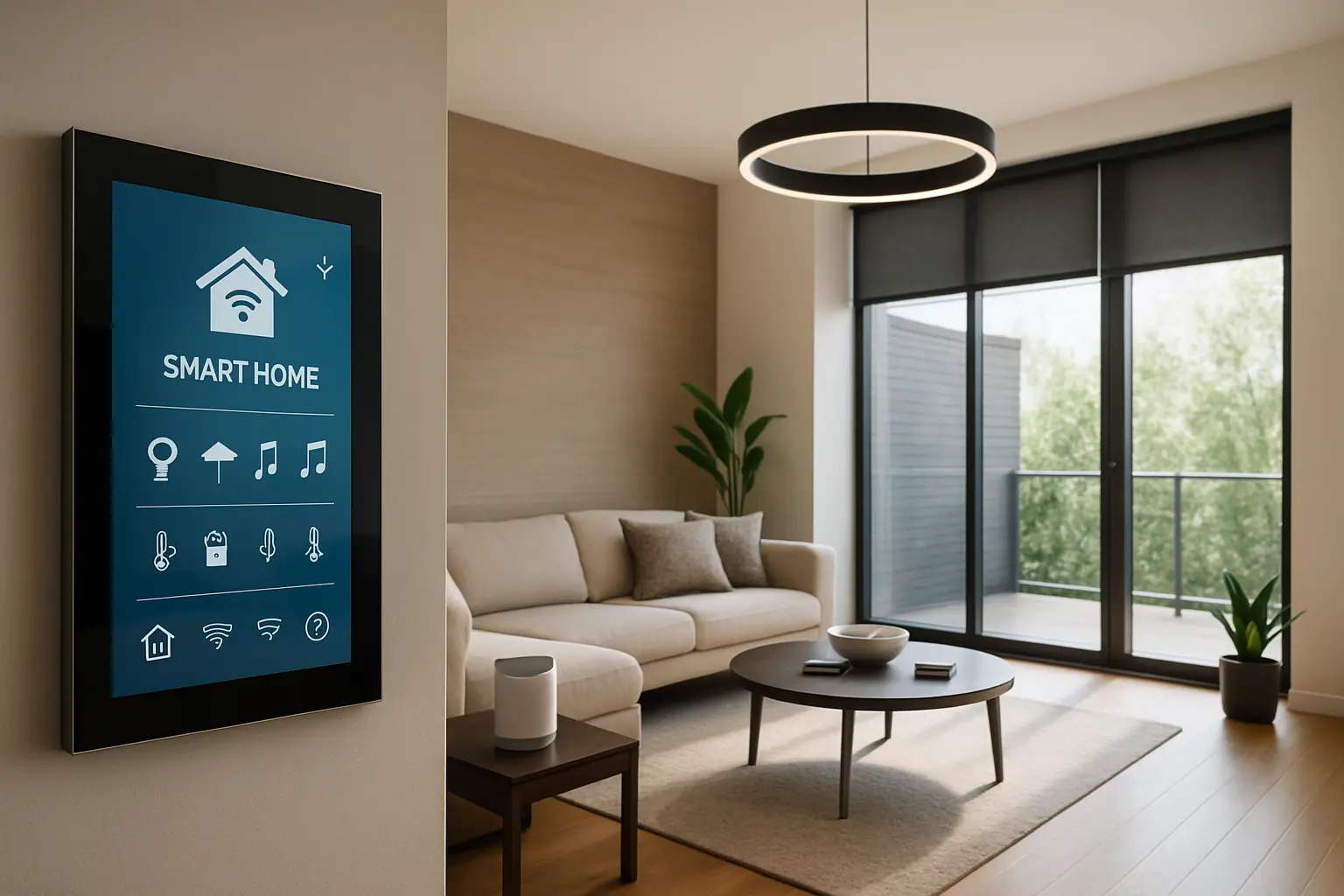Smart Home Integration: The New Must-Have in Modern Real Estate
Discover how smart technology is revolutionizing property values and changing buyer expectations across all market segments.

The Evolution of Smart Home Technology in Real Estate: From Luxury to Necessity
Smart home technology has undergone a remarkable transformation in the real estate market. What was once considered a luxury add-on has become an essential feature that buyers actively seek in their property searches. Industry experts now report that homes equipped with smart technology command premium prices and spend significantly less time on the market.
The integration of intelligent systems has become so prevalent that traditional homes without smart features are increasingly viewed as outdated, requiring substantial upgrades to remain competitive in today's market.
Key Smart Home Features Driving Property Values in Commercial and Residential Spaces
The most impactful smart home features that consistently increase property values include:
- Advanced Security Systems: Smart cameras, doorbell cameras, and automated lock systems
- Climate Control: AI-powered HVAC systems with zone-based temperature management
- Energy Management: Smart meters, solar integration, and automated energy optimization
- Lighting Automation: Programmable LED systems with occupancy sensing
- Connected Appliances: Kitchen and laundry equipment with remote monitoring capabilities
Commercial Applications
In the commercial sector, smart building management systems have become particularly valuable, offering:
- Occupancy-based resource allocation
- Predictive maintenance capabilities
- Advanced access control systems
- Energy consumption optimization
How Smart Integration Affects Buyer Decision-Making and Property Marketing
The impact of smart technology on buyer behavior has been transformative. Recent market research indicates that:
Over 80% of prospective buyers rank smart home features among their top three priorities when evaluating properties, with security and energy efficiency leading their concerns.
Property marketing has evolved to highlight these technological advantages, with virtual tours and remote property management capabilities becoming standard features in listings.
Future-Proofing Properties: Smart Technology Implementation Strategies for Sellers
For property owners looking to maximize their investment, implementing smart technology requires strategic planning:
Essential Implementation Steps
- Infrastructure Assessment: Evaluate existing wiring and network capabilities
- Scalable Solutions: Choose systems that can be easily upgraded
- Integration Compatibility: Ensure all smart systems can communicate effectively
- Professional Installation: Work with certified smart home technology experts
The key to successful smart home integration lies in creating a seamless experience that enhances daily living while providing tangible benefits in terms of efficiency, security, and convenience.
Return on Investment Considerations
When implementing smart technology, focus on features that offer the highest ROI:
- Security systems (estimated 150% ROI)
- Energy management solutions (estimated 120% ROI)
- Automated lighting systems (estimated 100% ROI)
As we continue to embrace the digital transformation of real estate, smart home integration has become not just an amenity but a fundamental aspect of modern property development and valuation. Property owners who adapt to this technological evolution position themselves advantageously in an increasingly competitive market.


